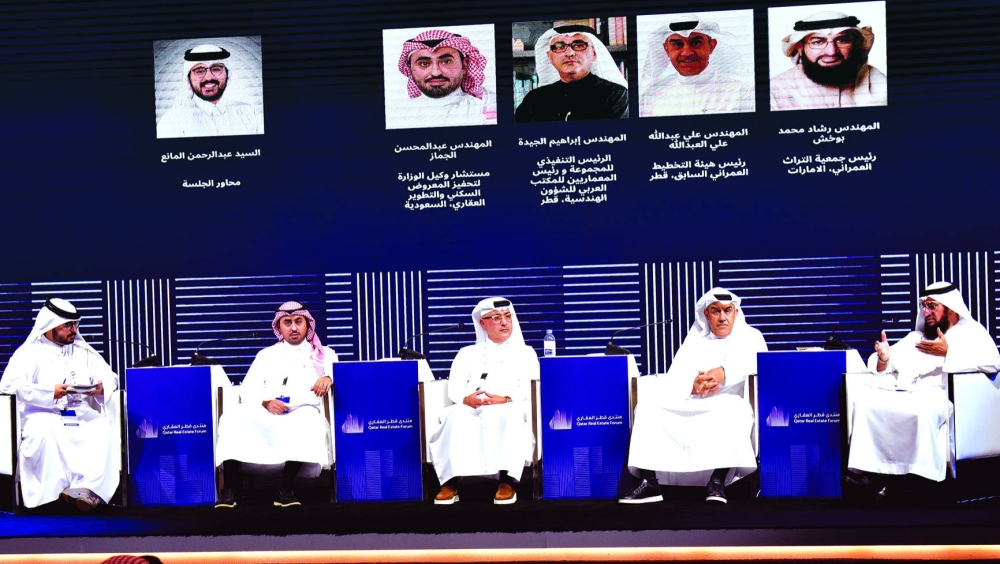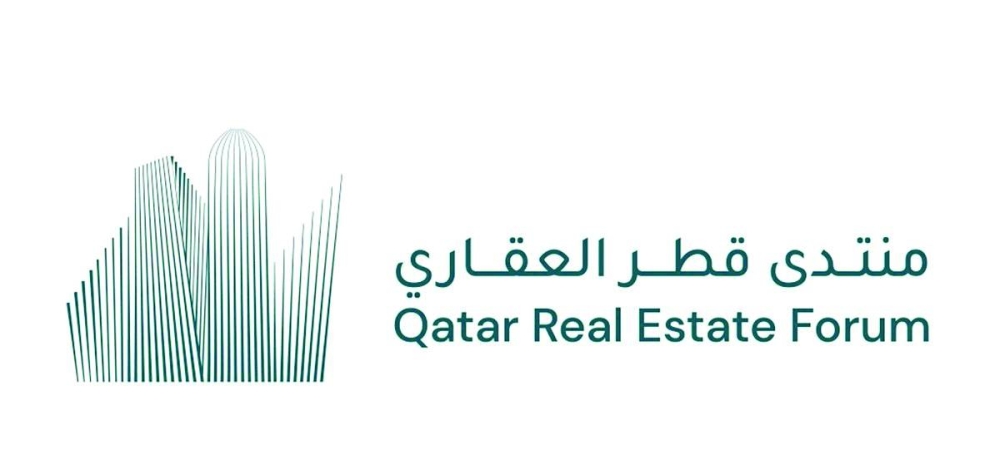Industry experts underlined the need for green buildings, smart city planning, and the preservation of cultural heritage as they explored the future of urban development and its impact on the overall quality of life at the Qatar Real Estate Forum Monday. The session, titled Future Cities for a Better Life Quality, shed light on the importance of sustainable development, humanising cities, and the role of the technologies of the fourth industrial revolution in the real estate development industry.
Noted Qatari architect Ibrahim Mohamed Jaidah, Group CEO of Arab Engineering Bureau (AEB), emphasised the key role of designing buildings and developing cities in an environmentally friendly manner, further improving the living conditions of its citizens.
Jaidah highlighted the importance of humanising cities, prioritising infrastructures that enhance pedestrian experiences, and combining modern designs with traditional Arabian architecture. He cited the Msheireb regeneration project as a model from which valuable lessons could be learned as it showcases a combination of pedestrian-friendly design and the integration of traditional Arabian aesthetics.
Jaidah underscored the marketing advantage of environment friendly and sustainable infrastructures for developers, noting that Lusail City serves as an excellent example of a sustainable and smart city that features green buildings and practices.
He stressed the significance of integrating trees into urban environments, as they contribute to climate improvement and the overall humanisation of cities.
As an architect, Jaidah also discussed the benefit of proper planning in designing buildings and various infrastructures, whether they are schools, residential complexes, or commercial buildings. He explained that urban development has undergone a transformation in recent years, with developers now considering energy and water usage in their designs. Having a clear design goal, he added, attracts investors as well.
Jaidah also shared his views on the positive impact of artificial intelligence (AI) in architecture and in the real estate sector, assuring professionals that AI is a tool to enhance their work rather than replace them. Utilising AI for data analysis, he added, enables architects to make informed decisions and obtain immediate results, revolutionising the field.
Engineer Abdulmohsin M Aljammaz, an advisor to the deputy minister of Residential Supply Stimulus and Real Estate Development in Saudi Arabia, tackled the optimal use of resources in developing smart cities, which he pointed out is a joint responsibility of the government and the private sector.
Digital transformation, he stressed, is inevitable and should be adopted to foster future cities. He highlighted the need for continuous innovation in the development of smart cities and the efficient operation of their systems. Engineer Ali Abdullah Ali Abdullah, former chair of the Urban Planning and Development Authority in Qatar, focused on the importance of utilising modern tools and materials in building smart cities.
He cited Lusail as an exemplary modern city: built with international sustainability standards and looking at the long-term needs of the area. According to Ali Abdullah, meeting new requirements for green buildings and their maintenance, and the adoption of modern technologies in the design process of future cities is crucial.
He lauded Qatar's comprehensive urban planning, which encompasses both present and future considerations. The FIFA World Cup 2022, he stressed, served as a catalyst for better infrastructure development and planning, significantly enhancing Qatar's real estate sector.
Engineer Rashad Mohammad Bukhash, president of the Architectural Heritage Association in the UAE, sheds light on the connection between smart cities and the preservation of cultural heritage. He said smart cities draw inspiration from old buildings and their designs, utilising the latest materials and technologies in construction. While old buildings may not be technologically advanced, he said that they embody sustainability in their design and material usage.
Recognising the value of preserving cultural identity, Bukhash urged developers to learn from and adopt elements of old designs, such as the iconic Souq Waqif, which has successfully preserved its traditional charm and authenticity. He also emphasised the pivotal role of cultural tourism in achieving sustainability, saying that preserving traditions and old designs not only attracts visitors seeking to experience the cultural identity of a destination but also contributes to the long-term sustainability of smart cities.
By integrating heritage into modern developments, Bukhash said cities can create unique and immersive experiences, encouraging more tourists to explore their historical sites. He noted that the UAE has been at the forefront of adopting new technologies and building smart cities as part of its comprehensive structural plan. He praised his country's commitment to smart initiatives, ranging from landscaping and environmental protection to the development of efficient public transportation systems, such as the metro.
These initiatives, Bukhash said, are designed to benefit and serve the population, ensuring that the advancements in technology enhance the lives of the people living in these smart cities. He highlighted the UAE's energy strategy, which focuses on investing in and utilising renewable energy sources such as solar and wind power. By reducing reliance on traditional energy sources, the UAE aims to decrease water and electricity consumption by 40% by 2050 as part of its plan.
New buildings in the UAE will use natural lighting and make waste management sustainable, Bukash added.

Panellists from Qatar, UAE and Saudi Arabia discuss 'Future Cities for a Better Life Quality' at the Qatar Real Estate Forum Monday. PICTURE: Thajudheen


